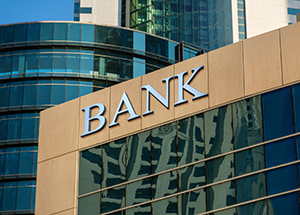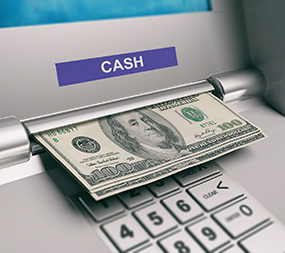 A checking account at one bank is the same as a checking account at another bank, right? Well, maybe not. In fact, according to the J.D. Power 2021 U.S. Retail Banking Satisfaction Study, now 41% of people do all their banking online. This is a pretty big shift from traditional banking.
A checking account at one bank is the same as a checking account at another bank, right? Well, maybe not. In fact, according to the J.D. Power 2021 U.S. Retail Banking Satisfaction Study, now 41% of people do all their banking online. This is a pretty big shift from traditional banking.
After reviewing the financial strength of a bank, here are several other things to consider as you decide what’s really most important to you in selecting a bank.
The online bank versus nearby location
While having a nearby brick and mortar location is important to many banking consumers, you might find better interest rates with an online-only bank because they don’t spend lots of money to maintain physical branches. As people switch to taking care of all their basic banking transactions online, one of the reasons to visit your local bank branch is to talk with a banker. If you believe you’d benefit from such discussion, make sure the online bank you’re considering will facilitate that for you.
Understand key bank fees
In addition to charging loan fees when they lend out money, banks bring in much of their revenue by charging fees on your deposit accounts. You’ll have a much more positive experience by ensuring your bank’s fees don’t outweigh the benefits of the account you’re considering. Here are three key fees to understand:
- Monthly maintenance fees. This is a monthly fee a bank charges on an account. Understand how yours works. Banks will waive these fees if your account is above a certain balance. Others waive the fees if you behave in a way they want you to behave. For instance, if you use a debit card versus writing a paper check. Others want you to make direct deposits. Still others want you to use their bill pay service. Understand this fee class and determine if you can abide by the terms your bank sets for them.
- Overdraft fees. These fees are charged to a checking account if you attempt to buy something but don’t have enough money in your account. There are a variety of ways to avoid overdraft fees, such as signing up for a protection program or linking your savings account to automatically pay the rest of the bill. Take the time to understand your bank’s options to avoid overdrafts and the cost associated with them.
- ATM fees. Some ATMs require you to pay money to use their machines, especially if the ATM you’re using isn’t in your bank’s network. Don’t overlook the opportunity to save money by ensuring that the bank you’re considering supplies ATMs in your area so you won’t have to pay a fee every time you need to use an ATM.
Other banking tools
Banks often provide tools to help you budget your daily and monthly expenses. Many offer free credit scores and credit monitoring. Others offer automatic transfers into a savings account. Still others offer the ability to open multiple savings accounts and label each account for different purposes.
Keep these tips in mind the next time you need to choose a new bank. With many different banks to choose from, a little research can ensure the bank you choose fits your financial needs and priorities.
Banking tips to help you cash in
Your cash is parked. Do you know if it’s making or losing you money? For instance, letting it sit in a non-interest-bearing account is a waste of earnings potential. It’s actually losing money if you factor in inflation! Here are some ideas to help you make the most of your banked cash:
Understand your bank accounts. Not all bank accounts are created equal. Interest rates, monthly fees, minimum balances, direct deposit requirements, access to ATMs, other fees and customer service all vary from bank to bank and need to be considered. Start by digging into the details of your accounts. There may be some things you’ve been unnecessarily living with like ATM fees or monthly account charges. Once you have a handle on your current bank, conduct research on what other banks have to offer.
Know your interest rates. As a general rule, the more liquid an account, the lower the interest rate. Checking accounts offer the lowest rates, then savings accounts, which yield lower rates than CDs. Maximizing your earnings is as simple as keeping your cash in accounts with higher interest rates. The overall interest rate earned between all your accounts should be higher than the inflation rate, which is generally around 2 percent.
Make smart moves. There are a couple of things to take into account when making transfers. First, federal law allows for only six transfers from savings and money market accounts per month. Second, if you invest in longer term investments like CDs or bonds, there are penalties for withdrawing funds before the maturity date. So make sure you can live without the funds for the duration of the term.
Stay diligent. Putting together a cash plan is just the start. The key to success is to be persistent. Besides losing out on potential earnings, mismanaging your cash can result in hefty overdraft fees. The more attention you devote, the more your money will grow.